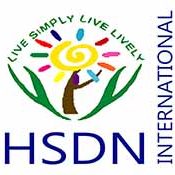Definition of Key Terms
Worldwide: No discrimination in achieving the organizations’ objectives. This is done by respecting and utilizing the diverse cultural viewpoints and expertise from both the developing and developed world societies in knowledge dissemination, and equally encouraging technology transfer.
Holistic: Integrated approach for development that does not treat the sustainability components as components existing in isolation.
Sustainable: Carrying out development to generate environmental, economic and social benefits both for the current generation and for posterity.
- Environmental sustainability: The use of natural resources without exceeding their ability to regenerate themselves; this allows the natural environment to effectively recycle waste generated so as to reduce carbon footprints.
- Economic sustainability: Harnessing natural resources to generate economic prosperity only in ways that permit the natural environment to regenerate itself, and equally encouraging economic diversification through the use of renewable energy sources.
- Social sustainability: Organization of society and state to foster cultural preservation and peaceful conflict resolution, and also striving for a just distribution of the access to natural resources and their benefits.
